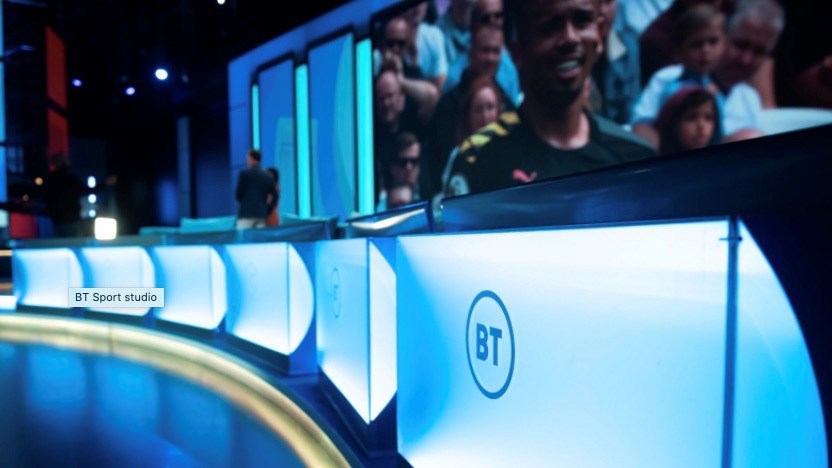
- BT announces exclusive sports joint venture discussions with Discovery
- DAZN to miss out on the English Premier League football rights it covets
- Will allow BT to focus on its core business, which requires attention – it can’t afford any more own goals
- Analyst expects the formation of the JV will not signal ‘full time’ for the BT Sport story
An end game is in sight for the future of BT Sport following the announcement that BT Group has entered into exclusive negotiations with US media giant Discovery to form a joint venture, a move that effectively leaves rival DAZN on the sidelines.
BT has been seeking a partner or buyer for BT Sport since May last year, with sports streaming giant DAZN Group (aka the ‘Netflix for sport’) and Discovery, which already boasts Eurosport among its portfolio of broadcast channels, both in the frame to do a deal at various times during the past few months: Indeed, DAZN was tipped as the favourite to strike a deal only weeks ago.
Now Discovery is in the driving seat, with plans to create a “sport and entertainment offering” for viewers in the UK and Republic of Ireland through a combination of BT Sport and Eurosport UK. The partners are hoping the new combined outfit, which will be equally owned and still include BT Sport’s various sports broadcast rights deals – including the highly-prized but also very expensive license to broadcast some English Premier League (EPL) football/soccer matches – will be operational before the end of 2022.
Combined, the duo would have a broad and enticing line-up for sports fans, including rights to show the Olympic Games, UEFA Champions League, UEFA Europa League, cycling Grand Tours, tennis Grand Slams, the winter sport World Cup season and Premiership Rugby, as well as EPL games.
"We are excited about this opportunity with BT Group to offer consumers a stronger and simplified combined sport offering in the U.K. and Ireland, and, more broadly, to advance our strategy of bringing sports and entertainment to more consumers on the platform of their choice," noted JB Perrette, President & CEO of Discovery Streaming & International, in this announcement. "We are aligned with BT Group on a shared vision to maximize the value and appeal of our respective UK sport assets, and we look forward to concluding a deal in the coming weeks."
This seems like a done deal, but it still means that BT has one foot inside the media business, in which telcos do not have a great track record and which many thought was a risky choice for BT to make when it launched announced its sports broadcasting plans in 2013 and went toe-to-toe with Sky Sports.
“BT’s move into sports broadcasting has always divided opinion amid the high spend needed to acquire football rights,” notes Kester Mann, Director, Consumer and Connectivity at industry research and consultancy firm CCS Insight, in comments emailed to TelecomTV.
“Initially, BT’s push into sport was successful in countering Sky's bullish move into home broadband more than a decade ago. But it has failed to help turn around a continued decline in average spend and the unit was hit hard by the pandemic due to the closure of pubs and clubs,” adds the analyst.
“Today’s announcement reflects an ongoing reshaping of the sports distribution model as streaming providers steadily become more influential. Only last year, AT&T agreed to spin off its media business and merge it with Discovery, while Amazon continues to push into sports broadcasting, notably though Premier League football rights and tennis,” notes Mann.
Indeed, AT&T has exited the media business, as did Verizon, while TIM (Telecom Italia) is now kicking itself (ironically?) for a football streaming deal in Italy that it hoped would drive massive demand for its broadband services, but which backfired and contributed to profit warnings, resignations, a top team reshuffle and a protracted takeover saga at the Italian operator. (See Content is no longer king for the US telco giants.)
But with a JV deal, BT still has one foot(ball) in the media sector door and, as the joint owner of an extensive sports broadcaster, will not have rid itself of the demands on its resources and funds that such an operation carries, though at least the costs will be shared and operational synergies will no doubt be identified.
Is this the best outcome for BT? Or the makings of another telco media balls-up? CCS Insight’s Mann believes the formation of the joint venture will not signal the final whistle on BT’s sporting life.
“As the operator ups its focus on networks and connectivity, particularly its growing ambition in full-fibre, an eventual sale of any joint venture with Discovery could be the likely end-game for the operator,” writes Mann.
Whatever the outcome, BT’s investors will be praying the operator can avoid an own goal, because right now it has its hands full just trying to stabilise the core telecoms business around its 5G and fibre-to-the-premises rollouts, as today’s fiscal nine months trading update showed.
BT’s share price was down by almost 5% to 186.2 pence on the London Stock Exchange at lunchtime today as news of the JV agreement and an expected 2% decline in full fiscal year revenues for the operator reached investors.
- Ray Le Maistre, Editorial Director, TelecomTV
Email Newsletters
Sign up to receive TelecomTV's top news and videos, plus exclusive subscriber-only content direct to your inbox.




